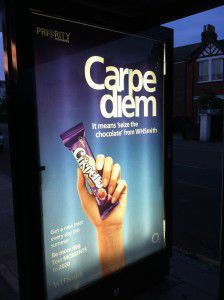Translation mistakes – not just for laughs
Today we have a guest post from language company, thebigword, on famous translation mistakes, some of which had serious consequences. Mistakes are common, and to be expected, when you’re learning a language – but when it really matters, it’s important to get it right!
Over the years there have been many translation ‘slip ups’ and faux pas, and whilst the mistakes may seem funny some can have a far more serious impact. Reputable language solution agencies such as thebigword, specialise in international translation and you can bet your bottom dollar that they wouldn’t be caught making slip ups like the following.
There have been many incidences over the years where mis-translation can go from highly amusing to potentially life damaging. For example, Mead Johnson Nutritionals in 2003 had a case raised against them when 4.6 million cans of baby food had to be recalled. The translation error, which was caused by effectively being lazy, meant that the prescribed recipe translated into Spanish could have caused massive health issues, according to the U.S. Food and Drug Administration.
 Businesses and the world financial markets have also paid the price at the hands of poor translation, most notably when the price of the U.S. dollar was sent spiralling after an incorrect translation of an article by Guan Xiangdong for the China News Service. Guan’s original piece was meant to be a speculative overview of a series of financial reports, but instead it was translated in a more aggressive tone, which ultimately made readers in the U.S. think it was an authoritative warning and they should move their money and sell shares.
Businesses and the world financial markets have also paid the price at the hands of poor translation, most notably when the price of the U.S. dollar was sent spiralling after an incorrect translation of an article by Guan Xiangdong for the China News Service. Guan’s original piece was meant to be a speculative overview of a series of financial reports, but instead it was translated in a more aggressive tone, which ultimately made readers in the U.S. think it was an authoritative warning and they should move their money and sell shares.
The Chicago Tribune published a highly shareable article not that long ago when it collated a series of images captured by tourists on their worldly travels. Examples from China included, ‘man toilet’ and ‘The government decides to cracking down fakes intensively for another three years’. However, our favourite has to be, ‘Because there is the situation when a step is bad, please be careful’. We’re pretty positive that was meant to say ‘mind your step’.
Of course, no faux pas goes unnoticed in the world of marketing, where language on billboards or even newspaper advertising isn’t missed by the most ardent observer.
The popular Dairy Association campaign, ‘Got Milk?’, raised an eyebrow or two when in Mexico it was translated to ‘Are you lactating?’ And in France, Colgate produced a new range of toothpaste called Cue; little did anyone realise that it had the same name as a well-known adult magazine. Now that is what we call a faux pas!
Do you have any favourite translation errors? Please share them in the comments below.
How the scripts hit the streets
I quite like the way that the iconography of foreign languages and exotic scripts happily manages to pervade our popular culture. It’s all over the place – it’s on the streets, we wear it , we eat it, we watch it and much of the time we have a laugh. And we have a bunch of rather clever advertisers and retail brands to thank for it.
Shall we begin with a little Latin? If you’ve been watching O2’s hilarious ‘be more dog‘ ads or sat at one of the 10,000,000 bus stops in London you will now know that the timeless rallying cry Carpe Diem has hit the streets. And, once you’ve had a hoot at the cat-that-turns-into-a-dog footage, you’ll have learnt that Carpe Diem means… ‘Grab the Frisbee’. I somehow think that Horace, who wrote the words c. 50 BC, would have agreed it was not too bad a translation for 2013 AD. I love the idea that some Latin is out there and available to all, a call to make the most of it, to seize the day!
So make a noise for VCCP, the agency who dreamt the whole campaign up; as an ex JWT exec myself , I am impressed.
And now to Japanese. How many of you think that the Superdry clothing brand, with its cool hoodies, tops and t-shirts plastered with Kanji and Hiragana, comes from Japan? Sorry to disappoint, but Superdry has its origins not in an office in downtown Tokyo, but in a market stall in Cheltenham, where a guy called Julian Dunkerton began selling branded clothing and later had the idea to use Japanese script on his clothing. And the rest, as they say, is history – Julian is now the Chief Exec of one of the UK’s top clothing companies.
It may be reassuring to know that although the company itself is no more Japanese than a benko box from Pret, I am told that the writing is not gobbledygook but does actually mean something: which I am sure is neither unprintable, nor deeply philosophical, but I rather like the idea of millions of people in London walking around with Japanese on their backs – and their fronts.
Of course I am not attempting to connect any of this to a serious attempt to learn a language – though the thought of people queuing up to take degrees in Classics and Japanese is a most appealing one.
However, I’m sure that most of us have at least some interest in the world around us, and iconic branding and imagery can often excite our curiosity, make us think a bit and have us see the world in a slightly new and refreshing way.
Steve
(Photo courtesy of Superdry.com)


